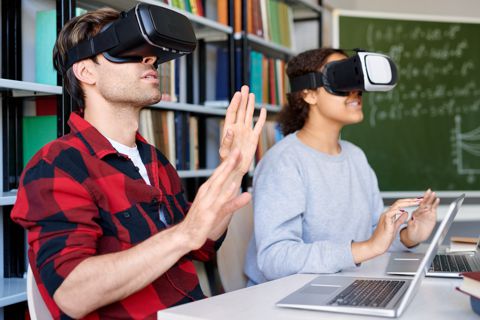In an article signed by Gurps Nijjar, recently published by AR Post, the author discusses the ways augmented reality is changing one of the most lucrative and important industries in the UK, the Education Industry.
The basic principle of augmented reality is to add computer-generated objects (CGI) to the real world we see around us. In order to “trick” the eye and make us believe that the CGI objects are really there in front of us, the augmented reality technology makes use of sound, video, graphics and haptic sensory inputs, as well as GPS location data.
According to Mr. Nijjar, something that is already being used nearly everywhere where AR was adopted is apps that allow you to learn by doing rather than by being exposed to theory classes and long speeches.
Doing things instead of listening about them or watching someone do them improves memory retention and caters to those students who are more practical and have trouble imagining or retaining concepts through explanation alone.
You can now learn by doing in many schools in the United Kingdom, which gives you a leg up on learning as it makes you practice what you are to learn, making it that much easier.
Another thing to consider is that each teacher has its own teaching methodology. Not only that but each subject is taught in a different way.
Augmented reality gives everyone the power to customize their experiences and adjust their AR sets to specs matching their strategies. Theoretic teachers can use AR as a means to empower their expositions while more practical tutors can have the students interact with the platforms.
This makes it so learning gets a new degree of flexibility.
There are a lot of AR apps being used, most of them simple and niche-specific.
The apps in use are mostly apps that teach you how to do certain procedures, like changing a pipe or a tire, and are used by professional schools that are actively teaching practice-oriented professions like a mechanic, plumber, electrician and so forth.
There are complex AR apps being used in the healthcare industry, such as helping train surgeons and aiding in diagnostics.
Finally, a lot more apps are being developed and launched as we speak, which brings some optimism into augmented reality’s picture.
Are you already familiar with Augmented Reality Learning? Do share your experience with us and launch the discussion….


